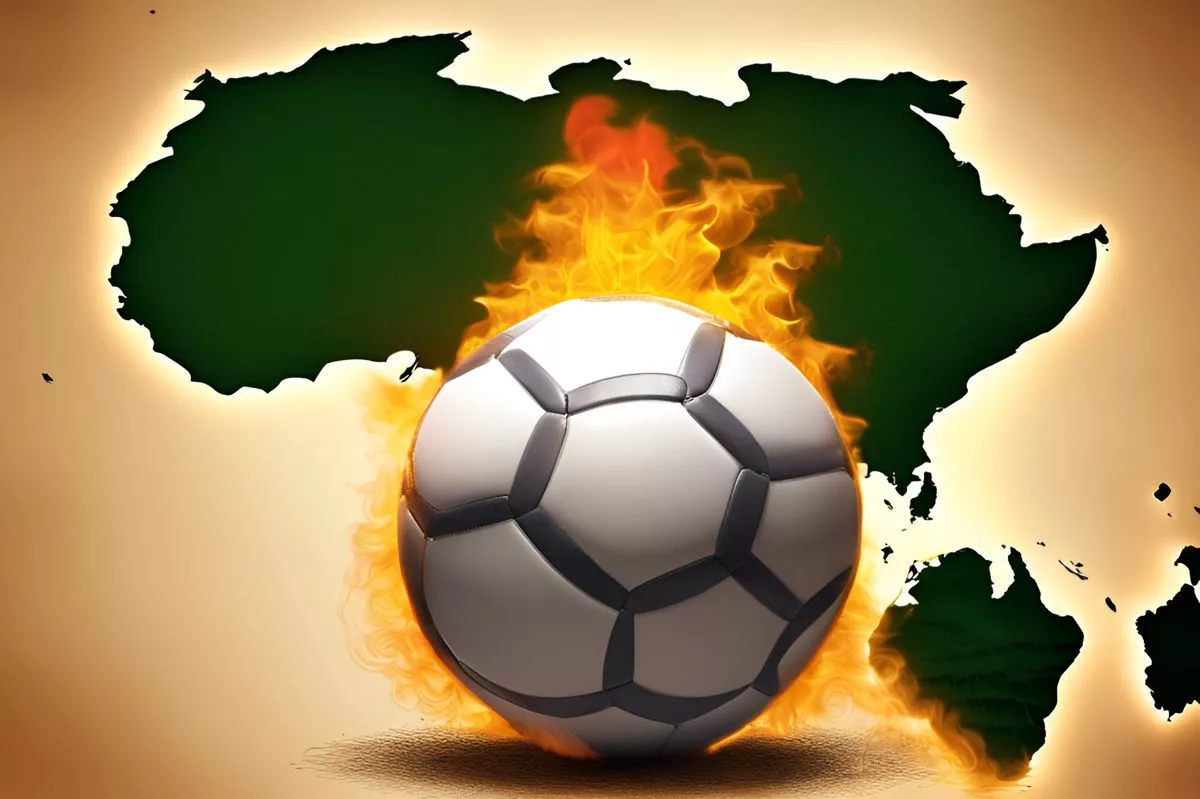The Africa Cup of Nations (AFCON) quarter-finals are here, with former champions Nigeria, DRC, Ivory Coast, and South Africa battling it out. The tournament has seen seven of the top ten-ranked teams already knocked out, making it full of surprises. The quarter-finals will be a mix of former champions, underdogs, and emerging talents, promising a thrilling showcase of top-tier football.
The Exciting Drama of AFCON
The Africa Cup of Nations (AFCON) quarter-finals are upon us with former champions Nigeria, DRC, Ivory Coast, and South Africa fighting for dominance. However, the tournament has been full of surprises, with seven of the top ten-ranked teams already knocked out. The quarter-finals are set to be a thrilling showcase of top-tier football with a mix of former champions, underdogs, and emerging talents.
The Exciting Drama of AFCON
Undeniably, the Africa Cup of Nations (AFCON) has always stood out as a thrilling spectacle in the football world. As we delve into the quarter-finals, our attention is drawn towards four previous champions – Nigeria, Democratic Republic of Congo (DRC), Ivory Coast, and South Africa – all eager to re-establish their dominance. However, the tournament has been full of surprises; seven of the top ten-ranked teams have already been knocked out, demonstrating the unpredictable nature of the game.
Unpredictability and Charm of AFCON: A Closer Look
The quarter-finals, brimming with anticipation and uncertainty, are upon us. Guinea and Mali, both former finalists, are eyeing to surpass their previous records, while Angola and Cape Verde are vying for their first-ever semi-final spots. The unpredictable outcomes and the surprising performances by the underdogs have been the hallmark of AFCON.
Nigeria’s journey in the tournament has been predominantly characterized by Napoli’s star player, Victor Osimhen. While his goal-scoring prowess has been a hot topic, it’s his remarkable stamina in the intense heat that truly symbolizes the Nigerian spirit. Contrary to popular belief, the Nigerian defense led by William Troost-Ekong has allowed only a single goal in four matches, with their impressive performance against Cameroon worth noting. Their next challenge is Angola, a team that has gone beyond expectations, clinching three consecutive victories. Gelson Dala and Mabululu will be key players in their match against the highest and lowest-ranked survivors.
The Powerhouses and the Underdogs: A Battle of Strategies
On the flip side, the Democratic Republic of Congo, under the leadership of coach Sebastien Desabre, has achieved their initial goal of reaching the quarter-finals. The Congolese, who twice clinched the title in the past as Zaire, are now hoping for their first semi-final appearance since 2015. They have demonstrated their strength by defeating Egypt, the record seven-time champions, in a penalty shootout. Against them is Guinea, who managed to secure a win in added time, thanks to Mohamed Bayo’s goal. Guinean coach, Kaba Diawara, has issued a warning to his adversaries, asserting that meeting them on the field is no easy task.
In a surprising turn of events, Ivory Coast, barely scraping through to the knockout phase, shocked the title-holders Senegal and are now seen as potential winners. The team, however, is staying grounded, a sentiment emphasized by their coach Emerse Fae. Their offensive lineup has been bolstered with the return of Borussia Dortmund’s forward Sebastien Haller and Brighton’s winger Simon Adingra. On the other hand, Mali primarily relies on Lassine Sinayoko for scoring. Under the guidance of Abidjan-born coach Eric Chelle, they are aiming for their first win against Ivory Coast in the tournament.
The Unexpected Contenders: Cape Verde and South Africa
Lastly, let’s turn to Cape Verde and South Africa. Cape Verde, ranked 73rd globally, might not seem like a probable contender on paper. However, coach Pedro ‘Bubista’ Brito has instilled a sense of belief in his squad, expressing his hopes for them to make it to the semi-finals. This team, primarily consisting of players from modest European clubs, and of Cape Verdean descent, has already caused an upset against Ghana and held Egypt, the seven-time champions. South Africa, now wary of their underdog opponents, have been strongly cautioned against complacency by their coach Hugo Broos, a man familiar with the taste of AFCON victory from his 2017 triumph with Cameroon.
A Thrilling Spectacle Awaits in the AFCON Quarter-Finals
In conclusion, the AFCON quarter-finals promise to be a thrilling exhibition of top-tier football. With a mix of former champions, underdogs, and emerging talents, we are all set for some unforgettable football moments. The AFCON stays true to its history and spirit, continuing to showcase the depth and diversity of African football, earning applause from observers worldwide.
1. Which teams are competing in the AFCON quarter-finals?
Former champions Nigeria, DRC, Ivory Coast, and South Africa are battling it out in the AFCON quarter-finals.
2. How many of the top ten-ranked teams have been knocked out of the tournament?
Seven of the top ten-ranked teams have already been knocked out of the tournament, making it full of surprises.
3. What kind of teams can we expect to see in the quarter-finals?
The quarter-finals will be a mix of former champions, underdogs, and emerging talents, promising a thrilling showcase of top-tier football.
4. Which players are standing out in the tournament?
Nigeria’s Victor Osimhen is standing out for his goal-scoring prowess and remarkable stamina in the intense heat.
5. Which unexpected contenders are vying for a spot in the semi-finals?
Cape Verde and South Africa are unexpected contenders vying for a spot in the semi-finals, each with their own unique style of play and strengths.
6. What makes the AFCON quarter-finals an exciting spectacle?
The AFCON quarter-finals promise to be a thrilling exhibition of top-tier football with a mix of former champions, underdogs, and emerging talents. The unpredictable outcomes and the surprising performances by the underdogs have been the hallmark of AFCON, showcasing the depth and diversity of African football.












